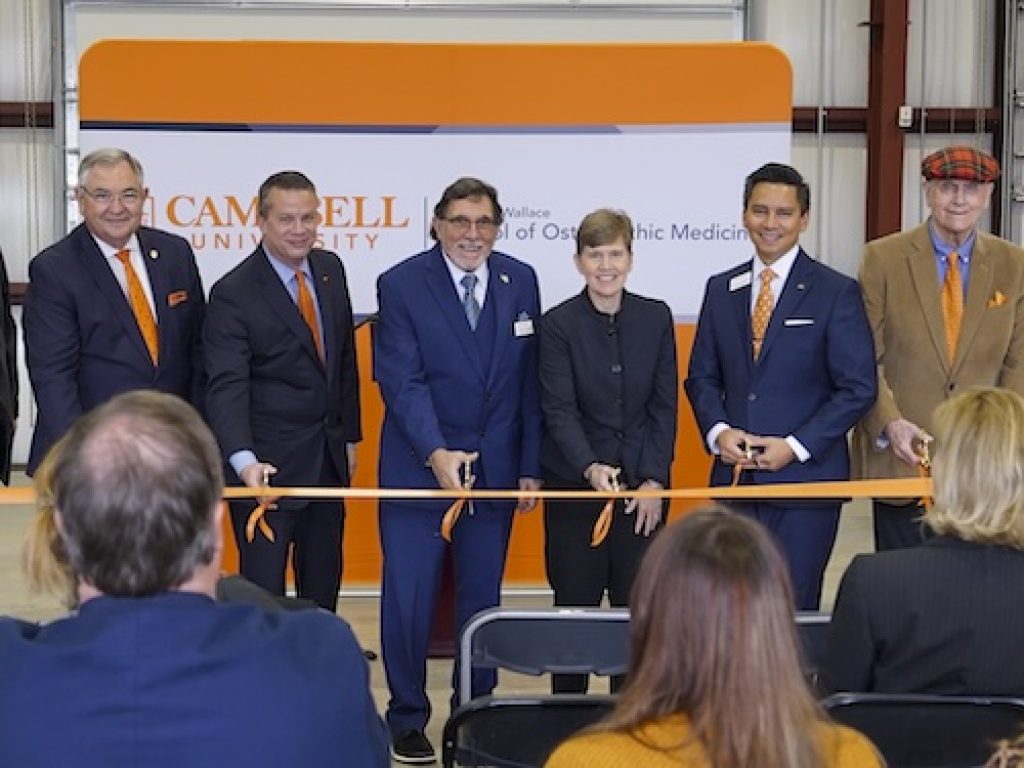
The volunteer-based clinic, established in 2014 within the med school, is composed of physicians and physician assistants who oversee teams of medical, physician assistant and pharmacy students.
Funded by a grant, about $1.4 million, from the N.C. General Assembly, as well as about $75,000 from Campbell, the station house provides cover and added security for the four mobile clinics, which are essentially mobile hospitals.
“This will be transformational, not only for the students and the educators, but definitely the community that surrounds it,” said Kessler, who said the station was born, in part, after he noticed a new firehouse under construction near Fuquay-Varina.
“Wouldn’t that be cool if we had something similar here?” Kessler remembers asking Cacioppo a few years ago.
Cacioppo is director of Community and Global Medicine at the medical school. He long saw the need to protect the valuable mobile clinics from the North Carolina heat, sun and rain. He stepped to the podium and immediately referenced Sir William Osler, considered by many to be the father of modern medicine.
“‘A good physician treats the disease, and a great physician treats the patient who might have the disease,’” said Cacioppo, quoting Osler.
“Here at CUSOM, that is our goal. Our goal is to treat the patient, the whole patient.”
A goal of medical students from the start of the clinics was reaching the migrant worker, among the most marginalized people in our community, Cacioppo said.

Some 150,000 migrant workers and their families reside in North Carolina each year, according to the N.C. Department of Health and Human Services (DHHS). Their work is oftentimes dangerous and physically demanding, and yet they face myriad obstacles in accessing adequate healthcare.
Cacioppo has cited estimates of 6,000 to 7,000 undocumented workers in Harnett County. In neighboring Duplin County, he estimates that between 11,000 and 12,000 migrant and seasonal workers, as well as their families, have limited or no access to quality healthcare.
Working days that often run long into the evening and accessing reliable transportation are paramount among those barriers.
“These workers have virtually no access to healthcare,” he has said.
Today, the Campbell University Community Care Clinic is funded through myriad grants, yet it also largely relies on private donations and other support, such as fundraising events. The clinic offers free visits, lab work, imaging and medications to people who would not otherwise have access to health care, on campus and via mobile medical units. The clinic sees only uninsured patients, living at or below 250 percent of the U.S. poverty line.



